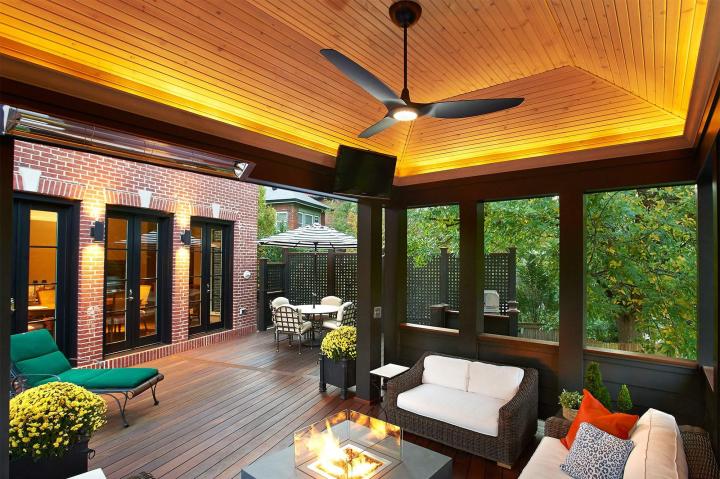
In the past couple years, countless different home fixtures have been given the “smart” treatment, and been augmented with network-connected brains. We’ve seen it happen with lightbulbs, thermostats, and even things like vent covers and sprinkler systems. Today, we can add yet another fixture to the list: the humble ceiling fan.
Earlier today, Kentucky-based company Big Ass Fans unveiled the new and improved version of it’s Haiku ceiling fan. The fan, which was pretty impressive to begin with, now comes equipped with BAF’s new SenseME technology built in, which gives it the ability to recognize when somebody is in the room and turn itself on or off automatically.
Additionally, as you’d expect from any card-carrying smart device these days, the new Haiku fan connects to your home wireless network, allowing you to control it from anywhere via an accompanying smartphone application. No more getting up to yank on chains or flip a switch — just fire up the app and stay on comfy on the couch.
That being said, however, in most situations you won’t even have to open up your phone. In addition to smartphone controls and room sensors, BAF equipped the fan with a range of temperature and humidity sensors, so it can tell when the room is about to become uncomfortable, and automatically adjust the speed of its rotation to compensate. It’s also got the ability to learn your preferences (much like Nest, Sensibo, Aros, and other smart climate control devices), so even without any input from you, the user, the new Haiku fan will begin to recognize your usage patterns and use that data to predict your optimal settings.
We don’t think in general you want to play around with apps,” said Big Ass Fan CEO Carey Smith. “And we think that 100 years from now people will think it’s amusing that you even ever thought about these things. It’s a waste of personal energy to have to think about that.”
The Haiku is much more than just a slew of smart features, too. Even without all the smarts, it’s still a pretty beastly contraption. It’s available with a wingspan of up to 6.5 feet, and the ultra-aerodynamic blades it sports are inspired by the aerospace industry, so not only does this thing move air more efficiently than your average fan, it’s also whisper quiet while it does so.
Unfortunately, however, this winning combination of smart features and precision-engineered parts doesn’t come cheap. At $1,045, this particular smart fan is likely a bit too steep to ever be a mainstream hit, but even so, it’s exciting to see yet another mundane home fixture getting a modern update, and we hope to see more fans like this pop up in the future.
Find out more here.
Editors' Recommendations
- The 5 best smart ceiling fans for your home in 2024
- Matter Launch Day Event brought big news about future updates, compatible products
- Smart homes without Wi-Fi: Huge possibilities or roadblocks?
- Save $100 on this Dyson purifying fan at Best Buy — now $300
- Security camera maker Kami dives into 24/7 home security monitoring




